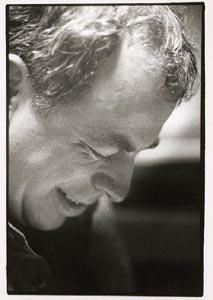TINLING CHOONG and KAM RASLAN at MPH Bangsar Village II


THE
6th MPH Breakfast Club for LitBloggers on
Saturday, July 28, 2007, will feature
Tinling Choong, whose début novel,
FireWife, was published by Nan A. Talese/Doubleday on January 23, 2007. Born and bred in Penang, Malaysia,
Tinling is working towards her Ph.D. in East Asian Languages and Literatures at Yale University. “
FireWife,” according to
Tinling, “is a story of plight and hope, escape and desire, offering vignettes in the lives of eight Asian women: a photographer, six women she photographs, and a girl travelling in between lives.” In January 2007,
FireWife was nominated for the
Henry Miller Award for the best literary sex scene published in the English language. And yes, she is a blogger.


Also featured is
Kam Raslan who has written his first novel,
Confessions of an Old Boy: The Dato’ Hamid Adventures (Marshall Cavendish, 2007). All except one of the Dato’ Hamid adventures collected here were first serialised in
Off the Edge magazine.
Kam Raslan is a writer and director, working in film, television and theatre in Malaysia. A columnist with
The Edge weekly and
Off the Edge, he hopes to make a feature film of his own one of these days. He shares a collection of essays with
Amir Muhammad and
Sheryll Stothard in
Generation: A Collection of Contemporary Malaysian Ideas (Hikayat Press, 1998).
Tinling Choong and
Kam Raslan will be introduced by
Eric Forbes.
Kenny Mah will be facilitating the session.
Date July 28, 2007 (Saturday)
Time 11.00a.m.-12.30p.m.
Venue MPH Bangsar Village II, Lot 2F-1 (2nd Floor), Bangsar Village II, No. 2, Jalan Telawi 1, Bangsar Baru, 59100 Kuala Lumpur, Malaysia
Tel: 603-2287 3600
Food and refreshments will be served
All lovers of literature are most welcome
TINLING CHOONG at Seksan’s
Tinling Choong will also be doing a reading at
Seksan’s.
Date July 28, 2007 (Saturday)
Time 3.30p.m.
Venue Seksan’s, No. 67 Jalan Tempinis Satu, Lucky Garden, Bangsar, 59100 Kuala Lumpur, Malaysia
Readings at Seksan’s is organised by
Sharon Bakar, where lovers of all things literary congregate and do readings once a month.
Tinling Choong will be appearing with other writers, reading excerpts from their writings, both published and works-in-progress.
Jit Murad and
Alina Rastam will also be reading.
Alina has just released her first collection of poems,
Diver & Other Poems (Cricket Communications, 2007). You might like to get your copies of
FireWife signed, too.




 WHILE BROWSING at MPH MidValley, I chanced upon a wide selection of wonderful paperbacks and first-edition hardbacks amidst many jostling for my attention, but I only bought a couple:
WHILE BROWSING at MPH MidValley, I chanced upon a wide selection of wonderful paperbacks and first-edition hardbacks amidst many jostling for my attention, but I only bought a couple:
 Nonfiction
Nonfiction










































